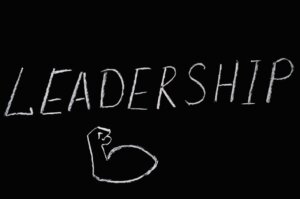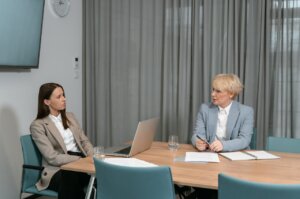I am currently reading The Beak of the Finch by Jonathan Weiner, I can highly recommend it to anyone interested in how life adapts and changes.
As I contemplate the implications that Darwin’s work has on species, it occurs to me that leaders are a “species,” so to speak, and the future demands that leaders evolve, and fast.
To understand the evolutionary pressures that leaders face, I pulled out seven books I have on the future, not leadership, but the future. They are certainly not definitive, but they help us understand the evolutionary pressures on leaders today.
In response to the pressures of social and business evolution, leaders need to be able to:
– Identify and respond to new rules, patterns, dilemmas, paradox, unsolvable problems, and weak signals as they arise
– Operate with a beginners mind (intentional operational naiveté), be knowledgeable but not captured by the current business model, paradigm, or strategy
– Confidently make good, not great, decisions with incomplete data and course correct as quickly as possible by learning from your actions (“Decisions, once made, create a new environment with no opportunity to replay the old.” Peter Bernstein)
– Actively find ways to challenge your filters of reality and get the blinders off to see what is happening in the world
– Be someone who can go places no one else will and bring others along with you (perhaps there is something here about returning safely as well!!)
– Define what may happen in the future, choose among unproven alternatives, explore the consequences of each, and act fast
– Capitalize on differences; assume that everyone has a different set of “facts” and that choice and decision require you sample the perspective of as many different people as possible
– Understand that the conditions under which a “solution” worked cannot be generalized; nor can we extrapolate past trends into the future, but we can learn from them nevertheless
– Recognize that the whole is the product of interaction among its parts, organizational structure must be in the mind of the leader not on a chart
– Reinvent, reinvent, reinvent – imitation will not lead to success
– Figure out how to develop knowledge nomads, who are free to come and go as they like, into leaders that will take your company into the future
– Make sense of information, meaning out of knowledge, and convert tacit into explicit so it can be passed around and applied – “The unseen and the unknown do not have any competitors.” Karaoke Capitalism)
– Support individualism and create community – enable networks, tribes, and meet-ups
– Remember that wealth is created by wisdom, the few people (talent not titles) who are able, and willing, to make things happen…find them
– Become a master story-teller, translating information into emotion that produces action
– Operate at the working surface – where in-depth knowledge meets the need to make choices and act
– Hire attitude train skills – it can’t be done the other way around – mindset is what lets you see in new ways
– Replace brands and job descriptions with experiences, dreams, and emotion – combine transactional and relational
– Position yourself to be exposed to luck, change before you have to, and be ready for quantum leaps when they show up
– Embark on difficult journeys (strategy, re-organization, change) with no clear destination, take clues from the environment as you go to determine the path forward
– Acknowledge, explore, and understand VUCA (volatility, uncertainty, complexity, ambiguity) without giving in to denial or being overwhelmed by analysis
– Continuously challenge your personal mental models, deep assumptions, and unquestioned truths
– Resist the temptation to use fear and confusion to motivate people, maximize trust and minimize ego
– Admit mistakes of interpretation, judgment, and choice openly and seek council from others; and when you fail, fail in interesting ways, extract the learning, and move on
– Treat reputation, truth, and integrity as strategic resources to be protected – balance market wisdom with moral wisdom
– Be comfortable with doubt, tolerant of differences, and open to alternative interpretations of “reality”
– Understand that big, powerful systems have their weak spots and a small force can bring them crashing down – think global financial systems
– Operate in the “intangible” economy (services, experiences, and relationships)
– Filter signal from noise, scan, scout, and be nimble
– Recognize and accept the new role of business a global power acting on the world stage and responsible to stakeholders as much, more (?), than shareholders
– Embrace multiple truths and ask new questions rather than provide certain answers
– Openly question the traditional models of power, leadership, and business in order to creatively meet the challenges of a world that is interdependent, complex, unpredictable, and diverse
– Identify and manage multiple, conflicting dilemmas without losing sight of the competitive marketplace
– Identify, tap, and amplify emerging abilities before the “job description” is needed
– Develop bio-empathy – understand, learn from, and respect nature’s patterns
– Act to calm situations (internally and in partnerships) when differences dominate and communication is strained
– Create constructive engagement and a collective stance
– Broaden everyone’s concept of self/US to include larger systems of which they are apart
– Give up control and seek to influence, connect, and collaborate
– Learn by doing, think future-back, rapid prototype ideas and products, and avoid over-standardizing
– Create common ground – link public and private sectors, co-create with customers, partner with competitors
– Successfully manage your own response (emotional, psychological, physical) to being challenged, surprised, or disappointed
– Imagine what you can make happen rather than speculate on what might happen
– Surface the dogmas, slay the dragons, expose the elephants
– Understand the gap between what you want/need to achieve and what your organization has the competency to deliver, and then close the competency gap
– Invest in business performance using leadership strategy and development
I promised myself I would stop at 1000 words!
References available on request, [email protected]
 Sections of this topic
Sections of this topic
















